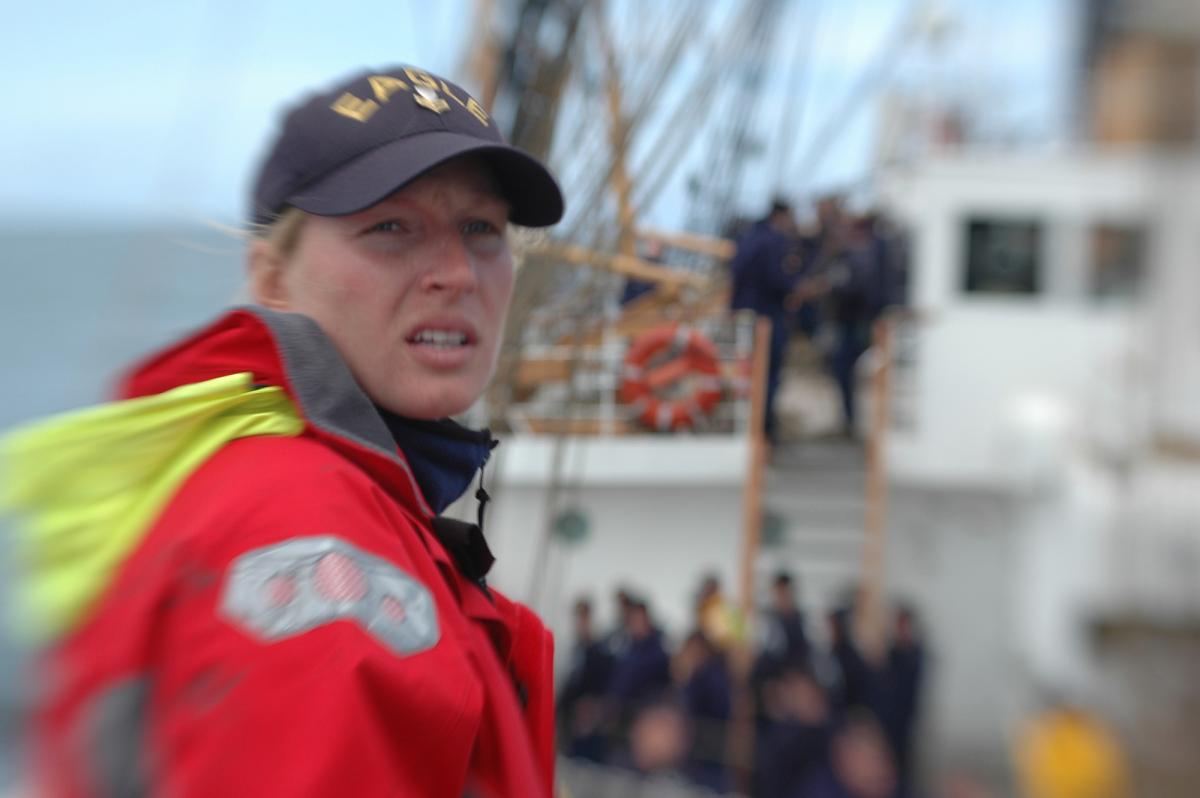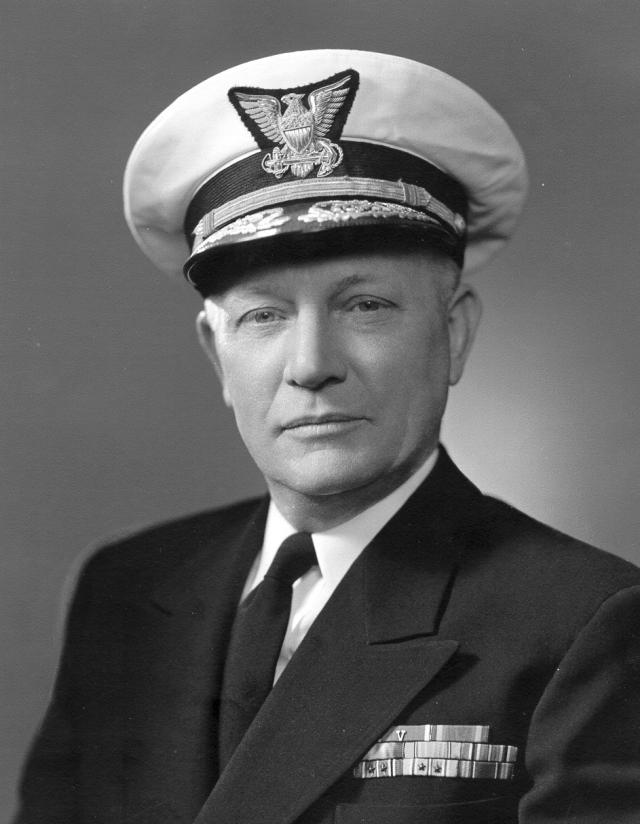Adaptability: Ability to modify work methods and priorities in response to new information, changing conditions, political realities, or unexpected obstacles.1
“To improve is to change, so to be perfect is to change often.” — Winston Churchill
In October 1942, Coast Guard Commander Merlin O’Neill received orders to command the USS Leonard Wood (AP-25), a 535-foot merchant ship converted into a military troop transport vessel. His report date: within 24 hours of receipt of orders. O’Neill left his office at Coast Guard Headquarters in Washington, DC, packed his seabag, and kissed his wife and children goodbye. Within weeks, O’Neill and the Leonard Wood, with a complement of 50 officers, 600 crew, and 2,500 Marines, set out to cross the Atlantic Ocean for the Allied amphibious invasion of Casablanca. During the next two years, O’Neill and his crew would sail the world as they transported soldiers, prisoners of war, and the injured between Europe, the States, and the Pacific islands.2
O’Neill was the right man for the job. In his 21 years of service prior to taking command of Leonard Wood, he had served on board nine different cutters, in command of five. He gained experience in a myriad of duties on board these distinctly different ships in diverse areas of operation—preventing the poaching of seals in the Bering Sea, chasing rum runners on the East Coast, navigating a ship from Seattle to the Philadelphia Navy Yard, and breaking ice in the Chesapeake Bay. He never had a choice of billets nor knew when he’d be relieved.3 He just answered the call and his family followed.
O’Neill was highly adaptable, and this adaptability, among other qualities expected in an officer, helped him become the 10th Commandant of the Coast Guard—a position he neither expected nor pursued.4
Of course, “not every officer wants to be a general,” claims Kate Batchelder Odell in her May 2019 Wall Street Journal article. As a military spouse she observed, “the military shuffles service members through various jobs and locations, which can be more of a box-checking exercise than a process that cultivates talent and skills.”5 Odell is not alone in this perspective. Active duty Coast Guard women recently expressed similar frustrations about the assignment process, as reported in the Homeland Security Operational Analysis Center retention study.6 One participant lamented, “if [the detailer] want[s] to move me somewhere I don’t want to go, then I’m done.”7
My, how our attitudes toward service have changed in 75 years.
Coast Guard leaders are listening to these voices, and the service is adapting the assignment process to increase retention. In 2018, detailers began aligning co-location tour completion dates for junior officers and junior enlisted personnel.8 This June, the Coast Guard announced a program to reimburse members’ spouses for licensure costs, up to $500, when a spouse must relocate to another state due to PCS orders.9 And detailers continue to provide some geographic stability: five years ago, 31 percent of rated enlisted orders issued were no-cost (transfers in the same geographic area).10 This year 38 percent of rated enlisted orders and 24 percent of officer orders issued were no-cost.11 No-cost orders provide members geographic stability and save the Coast Guard millions of dollars.
There is a service cost in readiness, however, to increasing geographic stability. Newton’s first law of motion comes to mind.
Conversely, the service gains three-fold when it shuffles members every few years to new units in new places. First, newly transferred members develop professionally as they build their skills, learn new systems, and become familiar with new areas of operation. Second, new members of units offer fresh perspectives to teams, breathe life into stale ideas, and increase unit readiness with renewed energy and sense of purpose. And third, service members stay adaptable. As O’Neill demonstrated, adaptability is essential to winning wars.
Although we are in a time of peace, let us not forget that our military needs to be ready to defend our Nation and democracy. It may need to call on you, your husband or wife, to take command of a post, in a far-off place, to get the job done. Our military’s success depends on each service member’s ability to adapt quickly to a new position at a new post in an unfamiliar place. These experiences created through our assignment processes, although uncomfortable, develop leaders in times of peace who will lead in times of war. We need these leaders at every rank within every unit—not just at the top.
Let us also not forget that we are an all-volunteer force who took our service obligations freely for a service with an obligation to be always ready.
1. U.S. Coast Guard, U.S. Coast Guard Officer Evaluation Report (CG-5310A), February, 2019.
2. The Reminiscences of Admiral Merlin O’Neill, U.S. Coast Guard (Retired), Interview by Peter Spectre, U.S. Naval Institute (Annapolis, MD), 2004.
3. The Reminiscences of Admiral Merlin O’Neill.
4. The Reminiscences of Admiral Merlin O’Neill.
5. Kate B. Odell, “Not Every Officer Wants to Be a General,” Wall Street Journal. May 21, 2019.
6. Kimberly Curry Hall, Kristen M. Keller, David Schulker, Sarah Weilant, Katherine L. Kidder, and Nelson Lim, Improving Gender Diversity in the U.S. Coast Guard: Identifying Barriers to Female Retention, Homeland Security Operational Analysis Center operated by the RAND Corporation, 2019.
7. Hall, et al, Improving Gender Diversity in the U.S. Coast Guard: Identifying Barriers to Female Retention, 41
8. Charles Ray, “Accelerating Toward our Future,” ALCOAST 214/18, 1 June 2018.
9. Matthew Sibley, “Reimbursement of Spouse State Licenses and Certification Costs,” ACN 066/19, 21 June 2019.
10. William Lane, “Enlisted Personnel Management Assignment Year 2014 (AY14) Final Report,” ALCGENL 097/14, 2 May 2014.
11. S. Matadobra, “Enlisted Personnel Management (EPM) Assignment Year 2019 (AY19) Final Report,” ALCGEN 041/19, 4 April 2019.
12. Mike Day, “Officer Assignment Year 2019 (AY19) Final Report,” ALCOFF 061/19, 24 May 2019.




